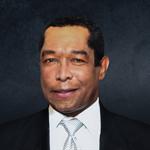Literature: Education
(asked on 5th October 2020) - View SourceQuestion to the Department for Education:
To ask Her Majesty's Government what assessment they have made of the report by Teach First Missing Pages: Increasing racial diversity in the literature we teach, published on 30 September.
The national curriculum for English aims to ensure that all pupils appreciate our rich and varied literary heritage. It encourages pupils to read a range of books, poems and plays to encourage the development of a life-long love of literature. Pupils should be taught to maintain positive attitudes to reading and understanding of what they read by increasing their familiarity with a wide range of books, including myths, legends and traditional stories, modern fiction, fiction from our literary heritage, and books from other cultures and traditions. Teachers have flexibility in their choice of books to teach within the context of the curriculum.
Following consultation on the minimum requirements for the new English Literature GCSE criteria in 2013, the final categories are: at least one play by Shakespeare; a selection of poetry since 1789; at least one 19th century novel; and fiction or drama from the British Isles from 1914 onwards. The GCSE specification encourages students to read widely within these categories, to broaden their knowledge of literature and enhance critical and comparative understanding. Selection of set texts for examination in the GCSE is down to the exam boards, who follow the categories set out above. The set requirements for both GCSE and A-level provide scope for pupils to read a breadth of diverse texts (including Black, Asian and Minority Ethnic authors) so that they can encounter diverse representations within literature.
Schools make their own decisions on choosing texts, within the set requirements. There is guidance for teachers on how to make their choices of texts, with literacy organisations and reading charities offering suggestions, book lists, guidance, research, and support.
As part of a broad and balanced curriculum, pupils should be taught about different societies, and how different groups have contributed to the development of Britain, and this can include the voices and experience of black people. The department is committed to an inclusive education system which recognises and embraces diversity and supports all pupils and students to tackle racism and have the knowledge and tools to do so.

